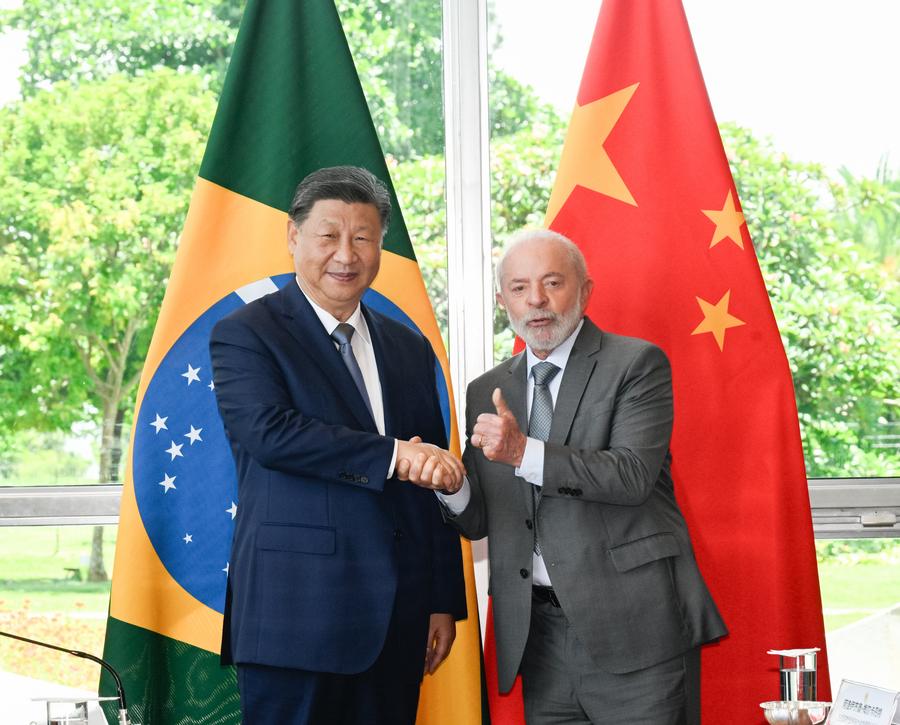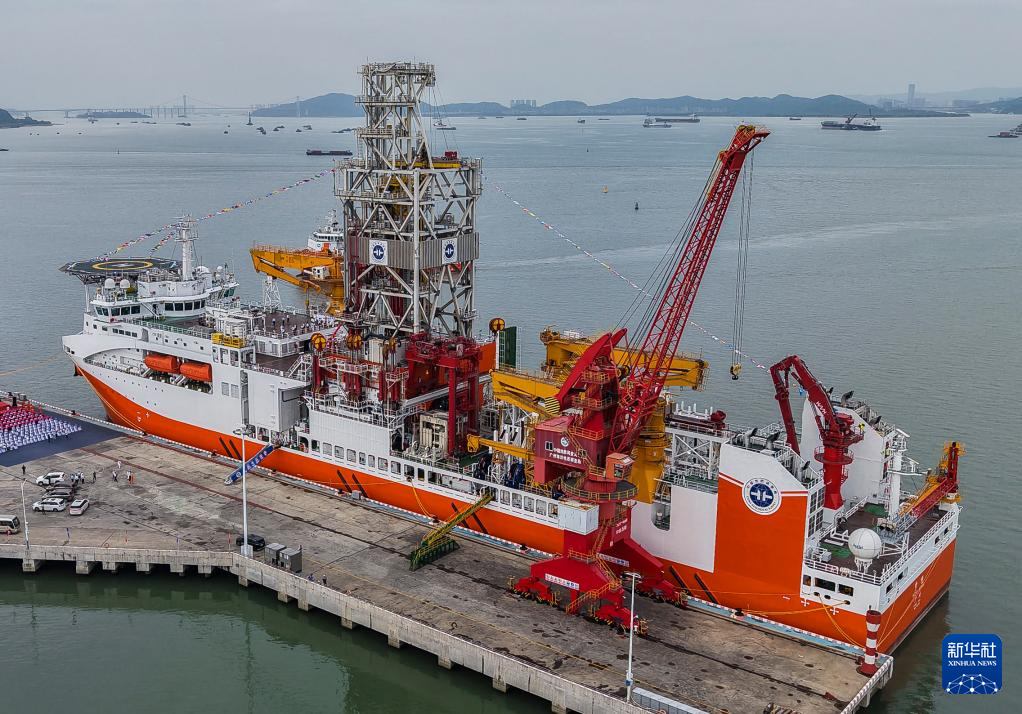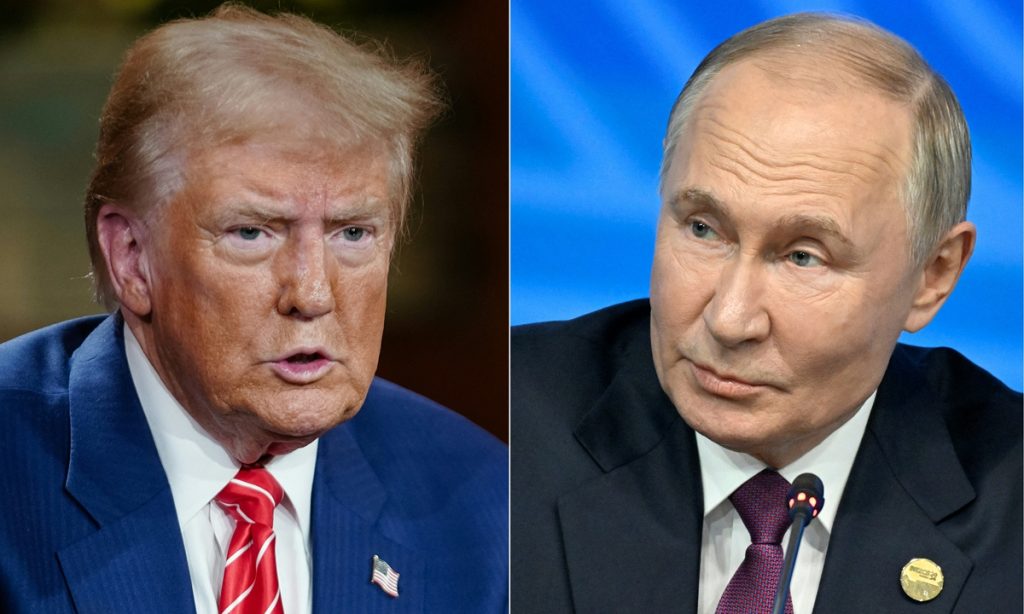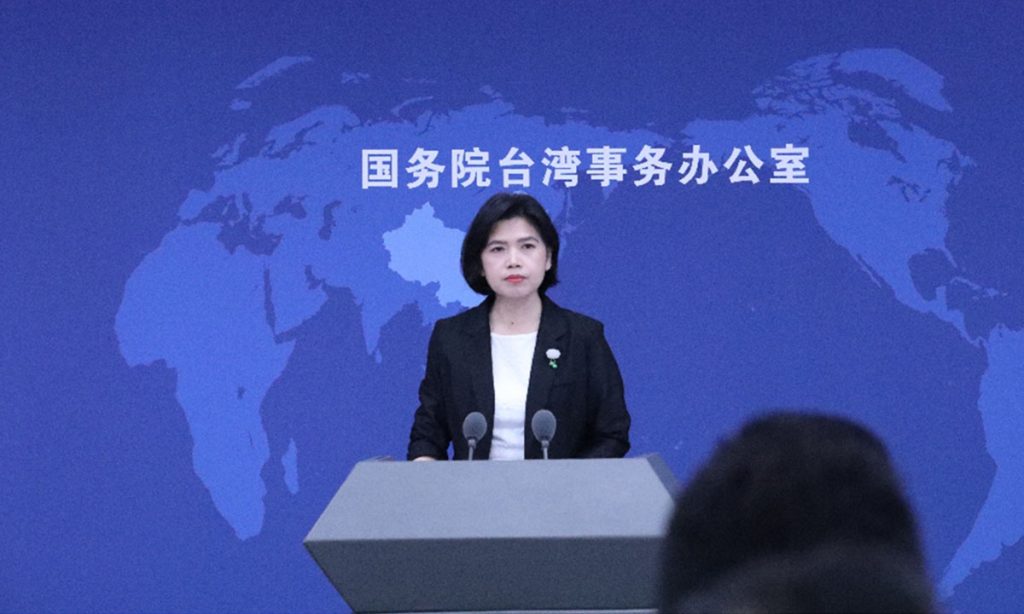Xi calls for building just world of common development, outlines China's actions for global development
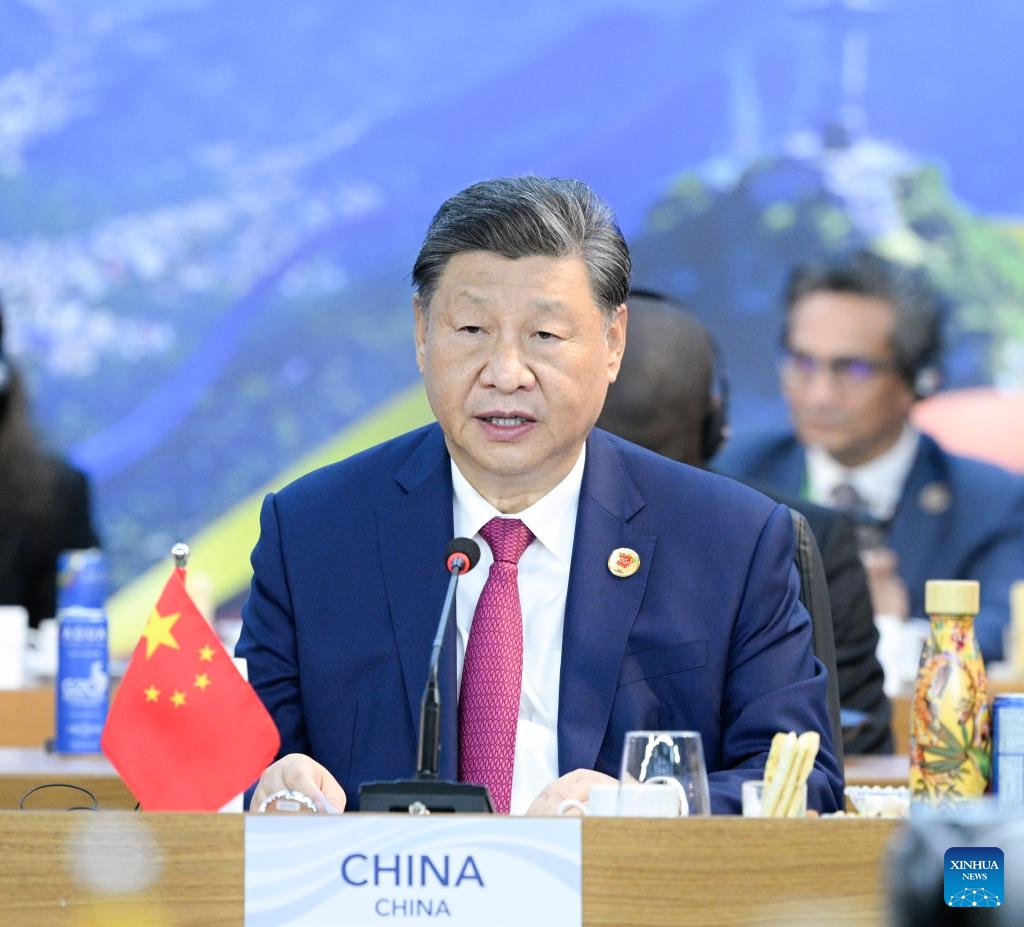
Chinese President Xi Jinping on Monday said that China is ready to work with all parties to build a just world of common development, and outlined China's eight actions for global development.
Xi made the remarks at Session I of the 19th G20 Summit on Fight Against Hunger and Poverty.
In his speech entitled "Building a Just World of Common Development," Xi pointed out that transformation of a scale not seen in a century is accelerating across the world today, and humanity faces unprecedented opportunities and challenges.
As leaders of major countries, G20 leaders should not let their vision be blocked by fleeting clouds. Rather, they must see the world as one community with a shared future, and shoulder their responsibility for history, take historical initiative and move history forward, Xi said.
Xi noted that at the Hangzhou Summit, China placed development at the center of the G20's macroeconomic policy coordination for the first time, and the Rio Summit this year has chosen the theme "Building a Just World and a Sustainable Planet," and decides to establish a Global Alliance Against Hunger and Poverty.
From Hangzhou to Rio, G20 leaders have been working for one and the same goal, that is, to build a just world of common development, he added.
To build such a world, Xi said, it is important to channel more resources to such fields as trade, investment and development cooperation, and strengthen development institutions, and there should be more bridges of cooperation, and less "small yard, high fences," so that more and more developing countries will be better off and achieve modernization.
He said that it is important to support developing countries in adopting sustainable production and lifestyle, properly responding to challenges like climate change, biodiversity loss and environmental pollution, enhancing ecological conservation, and achieving harmony between man and nature.
It is important to foster an open, inclusive and nondiscriminatory environment for international economic cooperation, promote a universally beneficial and inclusive economic globalization, energize sustainable development with new technologies, new industries and new business forms, and support developing countries in better integrating in digital, smart and green development to bridge the North-South gap, he said.
It is also important to stay committed to multilateralism, and uphold the UN-centered international system, the international order underpinned by international law and the basic norms of international relations based on the purposes and principles of the UN Charter, Xi added.
Xi underscored that China's development is an important part of the common development of the world.
China has lifted 800 million people out of poverty, and met the poverty reduction target of the UN's 2030 Agenda for Sustainable Development ahead of schedule, he said, adding that these achievements are the fruit of the strenuous, unified efforts of the Chinese government and people.
Noting that China always places the people front and center, and solemnly declares that "not a single poor region or person should be left behind," Xi said China tackles poverty by making targeted policies, facilitating growth, fostering industries with distinctive features in various localities, and promoting common prosperity.
China's story is proof that developing countries can eliminate poverty, that a weaker bird can start early and fly high, when there is the endurance, perseverance, and striving spirit that enables water drops to penetrate rocks over time and turns blueprints into reality, he said.
If China can make it, other developing countries can make it too, and this is what China's battle against poverty says to the world, he added.
Xi stressed that China will always be a member of the Global South, a reliable long-term partner of fellow developing countries, and a doer and go-getter working for the cause of global development. China will go hand in hand with fellow developing countries toward modernization, he said.
Xi presented eight actions by China to support global development.
First, pursuing high-quality Belt and Road cooperation. China is moving ahead with the development of the multidimensional Belt and Road connectivity network, one that is led by the building of a green Silk Road and will empower a digital Silk Road.
Second, implementing the Global Development Initiative. China will make sure the Global South research center that is being built is fit for purpose, continue to support developing countries, and deepen practical cooperation in areas such as poverty reduction, food security and the digital economy.
Third, supporting development in Africa. At the Summit of the Forum on China-Africa Cooperation in Beijing, China unveiled ten partnership actions on joining hands with Africa to advance modernization over the next three years and committed financial support in this connection.
Fourth, supporting international cooperation on poverty reduction and food security. China has decided to join the Global Alliance Against Hunger and Poverty. China supports the G20 in continuing to convene the Development Ministerial Meeting, and will stay a committed host of the International Conference on Food Loss and Waste.
Fifth, China, alongside Brazil, South Africa and the African Union, is proposing an Initiative on International Cooperation in Open Science to help the Global South gain better access to global advances in science, technology and innovation.
Sixth, supporting the G20 in carrying out practical cooperation for the benefit of the Global South. China supports the work of the Entrepreneurship Research Center on G20 Economies based in Beijing, and supports cooperation on digital education and the digitization of museums and ancient archives.
Seventh, implementing the G20 Anti-Corruption Action Plan. China is strengthening cooperation with fellow developing countries in fugitive repatriation and asset recovery, denial of safe haven, and anti-corruption capacity building.
Eighth, China is pursuing high-standard opening up, and unilaterally opening its doors wider to the least developed countries (LDCs). China has announced the decision to give all LDCs having diplomatic relations with China zero-tariff treatment for 100 percent tariff lines.
In conclusion, Xi stated that a journey of a thousand miles begins with the first step. China is ready to take steps together with all parties to build a just world of common development, leave poverty in the past, and turn vision into reality.
Brazilian President Luiz Inacio Lula da Silva chaired the meeting.
Before the start of the summit, Xi, together with other participating leaders, attended the launch of the Global Alliance Against Hunger and Poverty initiated by Brazil.

